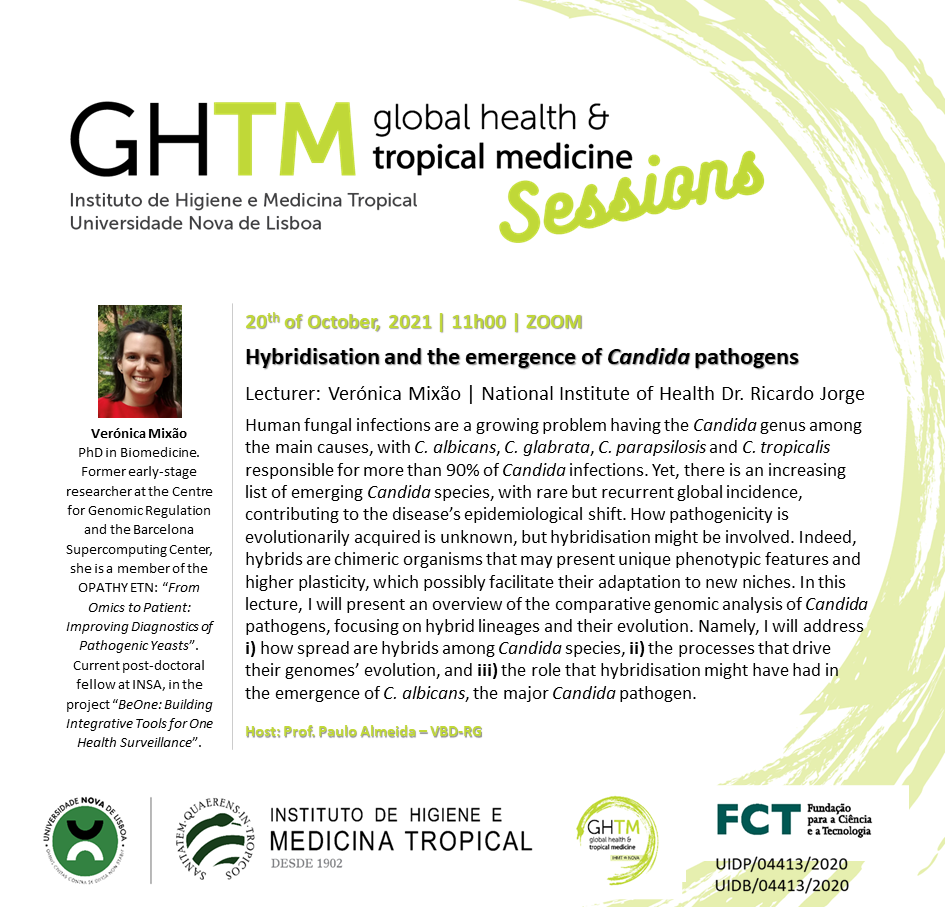Human fungal infections are a growing problem having the Candida genus among the main causes. This lecture is an overview of the comparative genomic analysis of Candida pathogens, focusing on hybrid lineages and their evolution, addressing i) how spread are hybrids among Candida species, ii) the processes that drive their genomes’ evolution, and iii) the role that hybridisation might have had in the emergence of C. albicans, the major Candida pathogen.
Ler mais
GHTM Sessions 2021 VBD01 » Hybridisation and the emergence of Candida pathogens
- De: 20/10/2021
- Até: 20/10/2021
- Localização: ZOOM | 11h00
